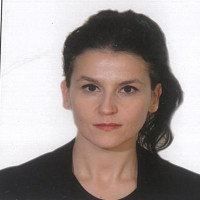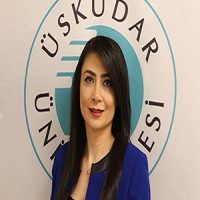Research Article
Tez Özeti
Erratum
Issue Reviewers






 0000-0003-0907-8229
0000-0003-0907-8229




 0000-0002-5035-0565
0000-0002-5035-0565





 0000-0002-3986-7408
0000-0002-3986-7408





Aim & Scope
AIM
The aim of the Journal of Akdeniz University Faculty of Communication (hereinafter referred to as "Journal of Akdeniz İletişim") is to contribute to the literature of communication sciences with a multidisciplinary perspective by providing a medium for researchers to share their knowledge with each other.
SCOPE
Journal of Akdeniz İletişim, the publication organ of Akdeniz University Faculty of Communication (hereinafter referred to as "Journal of Akdeniz İletişim"), includes original scientific publications.
Science and Subject Area
The scientific area that the Journal of Akdeniz İletişim focuses on is the field of communication. It hosts all researches that are appropriate for the multidisciplinary nature of the field of communication, including digital communication; journalism; integrated marketing communication; public relations; advertising; radio; television; cinema; social media; artificial intelligence; interpersonal communication; organizational communication; intercultural communication; health communication; sociology of media; political communication and communication practices that occur in all digitally created environments, and many other titles. The journal evaluates publication applications from established and developing research areas with various philosophical, theoretical or methodological foundations (including positivist, interpretive and critical approaches as well as quantitative, qualitative, ethnographic, performative and rhetorical methods).Readership
Journal of Akdeniz İletişim aims to deliver articles and research reports that make significant social and academic contributions to advance communication science to all academics, students and practitioners interested in the field of communication.Publication Policy
Journal of Akdeniz İletişim adopts the principles of diversity, inclusiveness and equality and supports original academic research and writings that are free from various prejudices, including sexism.Manuscript Submission Schedule for the Issue
April Issue: January 23 - January 30August Issue: May 23 - May 30
December Issue: September 23 - September 30
Author Guidelines
For this reason, it is of great importance for author candidates who are considering submitting their manuscript to the Journal of Akdeniz İletişim to take into account the rules and recommendations in this section.
In addition, we would like to inform that it is the authors' own responsibility to follow the processes. All responsibility for the delays caused by the author belongs to the author.
It is the Journal of Akdeniz İletişim’s priority criteria that;
- all manuscripts to be submitted are written in accordance with APA’s journal article reporting standards (available at https://apastyle.apa.org/jars)
- their references are arranged by using Mendeley (https://www.mendeley.com/), Zotero (https://www.zotero.org/), or Endnote (https://endnote.com/) reference managers.
- the number of words used in the titles is at most 12, the number of words used in the abstract is between 150-250, and the number of words in the manuscript is between 5000-8500 (including the abstract, tables and footnotes, excluding the References).
- the manuscripts are scanned for plagiarism on Turnitin or iThenticate, and their originality reports are uploaded to the Manuscript Submission System,
- the manuscripts are prepared on the Manuscript Template.
Writing and Publishing Rules
- Manuscripts submitted to the Journal of Akdeniz İletişim must be original and must not have been published elsewhere and sent for publication. The preliminary, peer-review and/or publication processes of the manuscripts that are found to be published in other journals or publications are terminated.
- Due to the indexation rules that the Journal of Akdeniz İletişim is subject to, the same author cannot publish more than one article in a year. In addition, each author is required to submit only one (1) manuscript in one issue for consideration. An author (whether first, second, third, etc.) may submit only one (1) manuscript per issue. Otherwise, all manuscripts submitted by an author will be rejected at the preliminary evaluation stage.
- All authors who have contributed to the submitted manuscript should be stated as an author of the manuscript. If this is not notified by the corresponding author at the beginning, no corrections regarding author contributions will be processed even if the authors request any correction from the Journal of Akdeniz İletişim later. The Journal has no legal responsibility in this sense. Authors who submit articles to the Journal of Akdeniz İletişim are deemed to have accepted the legal issues.
- All manuscripts should be prepared on the Manuscript Template. You can download the Manuscript Template here.
- The files to be uploaded separately from the Manuscript Template are stated below:o Turnitin / iThenticate Originality Report,o Cover Letter (in which authors’ information regarding their names, ORCID numbers, e-mail addresses, phone numbers and their short bio are provided) (should be filled and signed by all authors),o Copyright Transfer Form (should be filled and signed by corresponding authors),o Letter of Approval by Institutional Review Boards (where required)o Generative AI Use Disclosure form (should be filled and signed by corresponding authors).
- No author information should be included in the manuscript files sent for evaluation.
- Manuscripts should be prepared by using the MS Office Word program (.doc, .docx). No other formats are accepted.
- If the manuscripts have been previously presented in a meeting / symposium, the date and place of the meeting/symposium should be stated in the Cover Letter.
- Only manuscripts produced from doctoral dissertations are accepted for evaluation, those produced from master's thesis are not evaluated.
- If the manuscript was previously submitted as a doctoral dissertation and is produced from that dissertation, the title of the doctoral thesis should be stated and the information regarding the institute/institution, supervisor, etc. must be reported in the Cover Letter. The editorial board has the right to remove an article that was detected to have been produced from a doctoral thesis, even after it has been published, even though it was not notified by the author.
- If the manuscript produced from the doctoral dissertation is submitted to JAUFC as a manuscript produced by a single name, the petition of the doctoral dissertation supervisor notifying that s/he has waived all his rights (it is mandatory to have the doctoral dissertation supervisor’s wet signature) must be uploaded to the system. Thesis abstracts with a single name will be rejected at the preliminary evaluation stage if they do not upload this petition to the system.
- A maximum of three manuscripts produced from doctoral dissertations are published in all issues in a year.
- If the manuscript has been supported by a funding agency, the information regarding the funder, project number, etc. must be reported in the Cover Letter.
- APA 7 citation rules (https://apastyle.apa.org/style-grammar-guidelines) should be considered when making in-text references to the sources used in the manuscripts and preparing the references at the end of the manuscript. The works in the references should be listed alphabetically. The works in the references should be included in the text, and the works cited in the text should be included in the References. Footnotes and endnotes are not accepted in the Journal. It is mandatory to use one of the reference programs mentioned in the priority criteria (Endnote, Mendeley or Zotero) in bibliography editing; manual bibliography is not accepted. Since MS Office Word does not include the APA 7 citation style, automatic bibliography made via MS Office Word is not accepted in References editing.
- At the end of the manuscripts written in Turkish, there should be an English structured extended abstract section of at least 600 and maximum 850 words that briefly summarizes the study. Extended abstract in English is only required for Turkish manuscripts. Structured extended abstracts are not required for manuscripts in English. Please consider the Structured Extended Abstract format available in the Manuscript Template.
- The main titles of the manuscript (including the titles of Introduction, Conclusion, References and Extended Abstract) should be written in Calibri Light (Heading) font, lowercase, 14 point, bold and centered, with the first letters capitalized. Except for the main title, introduction, conclusion, references and extended abstract sections, all titles should be numbered and these numbered titles should be left-justified in the text. Headings and subheadings should be short and clear. Please consider the Manuscript Template.
- Manuscripts should be written in Calibri (Body), in 12 pt and single spacing.
- Abstracts must be at least 150 and at most 250 words. Abstract and text Font: Calibri (Body) 9 points; Line spacing: Single; Bold Line spacing: Single; Spacing before: 0 pt; Spacing after: 6 pt (Should be positioned so that there is no paragraph indentation) should be written justified. At the beginning of the article, there should be Turkish and English abstract texts for which the text consisting of a maximum of 250 words was prepared.
- At the end of the abstract, there should be keywords consisting of at least 3 and at most 5 words that best express the subject.
- Pages should be arranged with 2.5 cm margins on the right, left, top and bottom. Paragraphs in the manuscript should be indented. Paragraph spacing should be 0 pt first and then 6 pt. Page numbers should not be added.
- The titles of figures, graphics and pictures are at the bottom in Calibri (Body) font, 10 pt, in the middle and in bold. Table headings should be in Calibri (Body) font, 10 pt size, centered and numbered in bold at the top. If a table, graph, picture or figure is quoted from any source, the relevant information should be given following the table or figure. While the titles of figures, tables, graphs and pictures are in bold, the explanatory texts of such tables and figures should be normal. For example; Figure 1. Journal Logo; Table 20. Journal Issues.
- It will be appropriate for manuscripts to comply with the following order in the studies: Title, Abstract, Keywords, English Title, Abstract, Keywords, Introduction, Main Text, Method, Results, Discussion, Conclusion and References, and Structured Extended Abstract in English (if the manuscript is in Turkish). APA Journal Article Reporting Standards must be applied.
- Manuscripts should employ in-text references for citations instead of footnotes.
- All manuscripts prepared in Turkish or English must have been grammarly proofread by a native speaker.
- When quoting directly, quotations longer than 40 words should be written as a block, without quotation marks, aligned with the first line of the paragraphs (1.25 cm indented from the left), in Calibri (Body) font, 10 point, first 0 pt, then 6 pt, and single-spaced, in italic (italic). When quoting, words and sentences removed from the original work should be indicated with three dots (…) in parentheses. In this section, under the Introduction tab of the authors, this rule is only valid when quotations longer than 40 words are used directly in the text, and quotations shorter than 40 words can be given in double quotation marks, paying attention to the rules for citing sources in the text.
- All legal, academic, ethical, etc. responsibility belongs to the author(s). Manuscripts should not contain plagiarism, and originality report obtained from Turnitin or iThenticate should be uploaded to the Manuscript Submission System together with the manuscript. For manuscripts to be evaluated, the Turnitin/ iThenticate originality report must be 15% or less (with less than 9 words, including citations, excluding references). The rate of quoting from the same study should be at most 3%. Manuscripts with a similarity rate above or those without a Turnitin/iThenticate report will be desk-rejected.
- In accordance with the copyright law, the permissions for quotations, tables, pictures, examples, etc. used in the manuscript must be obtained by the authors from the copyright-holders.
- If human factor is involved in research articles, then the Letter of Approval from Institutional Review Boards should be uploaded to the system. Manuscripts that do not require such letter are required to upload a wet-signed petition to the system for notifying this situation.
Referencing Rules
- Only APA 7 style rules (https://apastyle.apa.org/style-grammar-guidelines) should be applied for references and in-text citations.
- The References should include the DOI numbers of the works which were assigned a DOI number.
Ethical Principles and Publication Policy
LEGISLATION
- Journal of Akdeniz University Faculty of Communication (hereinafter referred to as "Journal of Akdeniz İletişim") acts in accordance with national and international standards regarding research and publication ethics.
- Journal of Akdeniz İletişim complies with (a) Press Law, (b) Law on Intellectual and Artistic Works, (c) Higher Education Institutions Scientific Research and Publication Ethics Directive, and (d) Transparency and Best Practice Principles in Academic Publishing.
- Journal of Akdeniz İletişim has adopted the International Ethical Publishing Principles published by the Committee on Publication Ethics (COPE), Directory of Open Access Journals (DOAJ) and Open Access Scholarly Publishers Association (OASPA).
PRINCIPLES OF PUBLICATION ETHICS
Manuscripts that will be sent to Journal of Akdeniz İletişim for evaluation must include the following information in the "Declarations" section of the manuscript text:- Whether the ideas and works of art used are used in accordance with copyright;
- Whether the necessary permissions have been obtained for the use of scales, surveys or photographs belonging to others;
- Whether an "informed consent form" has been obtained in case reports.
Approval from Institutional Review Board (IRB)
- In all branches of science, research requiring approval from Institutional Review Board (IRB) must obtain official approval from the relevant ethics committee and must indicate this approval information (board name, date, number) in the text of the article.
- Journal of Akdeniz İletişim does not evaluate studies without ethics committee approval.
- Manuscripts submitted to the Journal of Akdeniz İletişim must also include information indicating that the informed consent form has been signed in case report type studies in the "Declarations" and "Methodology" sections.
- In line with the decisions taken by TÜBİTAK ULAKBİM TR Index, approval from Institutional Review Board has been made mandatory for all manuscripts to be published as of 2020.
Manuscripts Requiring Approval from Institutional Review Board
- Manuscripts using the following as data collection techniques in qualitative, quantitative and mixed method: Survey, interview, focus group discussions, observation (participatory / non-participatory), etc.;
- Manuscripts using humans and animals (including material/data) for experimental or other scientific purposes;
- Clinical studies conducted on humans;
- Clinical studies conducted on animals;
- Retrospective studies conducted in accordance with the Personal Data Protection Law (PDPL).
Protection of Human, Animal and Environmental Rights
- All research conducted on humans must be conducted in accordance with the principles of the World Medical Association's Declaration of Helsinki.
- In clinical studies conducted on humans or samples obtained from them, an informed consent form must be obtained and this must be stated in the "Declarations" section of the article.
- In manuscripts where humans participate voluntarily, a written informed consent form prepared in accordance with the research protocol must be obtained; for children, guardians or individuals with confirmed mental illness, the consent of the legal guardian must be obtained.
- The confidentiality of information provided by individuals participating in the research must be protected, the privacy of the respondents must be respected, and the research must be planned in a way that does not put the participants at risk, based on their autonomy and dignity.
- All experiments involving animals must be conducted in accordance with the ARRIVE and ICLAS guidelines and must receive approval from the Institutional Review Board. In addition to the ethical treatment of animals, authors must also provide detailed information on measures taken to prevent pain and suffering in the "Methodology" and "Declarations" sections.
Protection of Personal Data
All personal data sent to Journal of Akdeniz İletişim is secured within the framework of the Personal Data Protection Law (PDPL). Information belonging to authors, reviewers and other real persons is not shared with any third party or institution.Previously Published or Simultaneously Submitted to More Than One Journal
Submission of the same or very similar articles to more than one journal by the authors is considered an ethical violation. In the event of such a situation, the article is returned to the author and an embargo is applied to the author's articles for a period determined by the Editorial Board.Plagiarism Action Plan and Journal's Precautions
- Manuscripts sent to Journal of Akdeniz İletişim must not contain plagiarism.
- A plagiarism report obtained from Turnitin or iThenticate programs must be uploaded to the system.
- The similarity rate in the report (excluding references, less than 9 word matches, including citations) must be 15% and below for evaluation; the rate of using the same study must be less than 3%. Manuscripts that do not meet these criteria or do not have a report are rejected at the preliminary evaluation stage.
- If the report is not found appropriate or suspicious, the editorial team may request an additional plagiarism report or may obtain and examine the plagiarism report themselves. In the event of a suspicious report, the situation is communicated to the authors and an explanation is requested. If the necessary response is not received from the author(s) within 14 (fourteen) days, the manuscript is rejected. In addition, the account of the author responsible for the violation is closed by the Journal's Editorial Board and the author is prevented from submitting any article to the Journal of Akdeniz İletişim for 3 (three) years.
Corrections, Retractions, and/or Expressions of Concern
- If minor errors are found in published articles that do not change the findings, interpretations, or conclusions, editors may issue corrections. However, if errors or violations are found that are significant enough to affect the results and findings, the article may be considered for retraction.
- If there is evidence that authors misconducted the research or publication, that the findings are unreliable, and that institutions did not investigate, editors will consider issuing expressions of concern. COPE guidelines are used as a guide for such actions.
Conflict of Interest Declaration
- Authors must declare any institutional, financial, personal or academic conflict of interest during the submission of an article to the Journal of Akdeniz İletişim, both in the Cover File and in the "Declarations" section of the manuscript.
- If reviewers detect any conflict of interest that would prevent them from evaluating the article, they must notify the Journal's editor and not participate in the process.
- Journal of Akdeniz İletişim prevents conflicts of interest by ensuring that reviewers and authors do not work at the same institution during the evaluation process.
- While evaluating articles submitted by board members of the Journal of Akdeniz İletişim (advisor, editorial board member, etc.), the roles of these authors in the Journal are suspended until the relevant article process is completed and they are not involved in the process.
- Articles written by the editors of the Journal of Akdeniz İletişim are not included in the evaluation process. In addition, if the evaluation and decision-making process of articles written by family members of any member of the Editorial Board is in question, these members are not included in the evaluation process and their roles are suspended.
Ethical Violation Notification
Readers can report any errors, inaccuracies, plagiarism, abuse or duplicate articles in published articles by sending an e-mail to iletisimdergi@akdeniz.edu.tr. In the event of such a notification, the the Journal's Editorial Board carefully examines the notifications received and takes the necessary actions within the framework of COPE guidelines. The relevant COPE guidelines can be accessed from the link.Submitting Complaints and Objections to the Journal
Complaints and objections regarding the content, procedures or policies that are under the responsibility of the Journal of Akdeniz İletişim or the members of the journal boards can be sent via e-mail to iletisimdergi@akdeniz.edu.tr. Submitted complaints are forwarded to the Editor-in-Chief by the Journal Secretariat and are meticulously examined and evaluated by the Editorial Board under the chairmanship of the Editor-in-Chief in accordance with COPE guidelines. The relevant COPE policy can be accessed from this link.Other Actions Contrary to Scientific Research and Publication Ethics
Other actions not specified here that are contrary to scientific research and publication ethics are evaluated and decided in accordance with Article 4 of the Scientific Research and Publication Ethics Directive of Higher Education Institutions to which Journal of Akdeniz İletişim is affiliated.Responsibilities of Stakeholders
A) Publisher Responsibilities:
i. Honesty and Impartiality: Submitted manuscripts are evaluated in accordance with academic and scientific standards; a fair process is carried out without considering the authors' differences such as gender, religion, race, political views.
ii. Confidentiality: All personal data submitted to the journal is protected and not shared with third parties or institutions.
iii. Editorial Structure: The appointment processes of editors and editorial board members are transparent; this information is clearly included on the website.
iv. Independence of Editors: Editors working in the journal make decisions independently of the publisher; this situation is based on the principle of editorial freedom.
v. Ensuring Ethical Principles: Peer review processes are conducted transparently and fairly; necessary measures are taken to prevent conflicts of interest and ethical violations.
vi. Publication Process Management: Manuscript evaluation and reviewing processes are regularly audited; the format and content of published issues are prepared correctly.
vii. Responsibilities Regarding Published Articles: The copyright and other rights of published articles are protected on behalf of the journal and authors; A record of every article that has not yet been published is kept regularly.
B) Editor Responsibilities:
i. Publication Process Management:• The conformity of submitted manuscripts to the journal's goals and scope is checked.
• Manuscripts are directed to appropriate reviewers and reviewing processes are monitored.
ii. Reviewer Evaluation Process:
• Reviewe evaluations are conducted transparently, fairly and objectively.
• Conflicts of interest are prevented and ethical violations are kept under control.
iii. Protection of Ethical Principles:
• Ethical problems are identified and solutions are sought.
• Manuscripts are reviewed or relevant software is used to prevent plagiarism and scientific fraud.
iv. Ensuring Scientific Quality:
• The aim is to increase the scientific quality of published content.
• Language and grammatical errors in articles are corrected.
v. Editorial Board Management:
• Team members in the journal board are organized.
• Division of labor and distribution of tasks are planned in editorial processes.
vi. Communication and Transparency:
• Effective communication is provided with authors, reviewers and editorial board members.
• Policies regarding peer review and other editorial processes are clearly stated on the website.
C) Author Responsibilities:
i. Original Manuscript Submission:• It should be ensured that the research presented in the manuscript provides originality and scientific contribution.
• Ethical rules should be followed by avoiding plagiarism, data manipulation or forgery.
ii. Compliance with Ethical Rules:
• Ethical principles should be adhered to during the research and presentation process.
• Necessary ethics committee approval should be obtained for studies involving human or animal subjects and should be stated in the "Methodology" and "Declarations" sections of the manuscript.
• Whether there is a conflict of interest or not should be declared in the "Methodology" and "Declarations" sections of the manuscript; if any, funding sources should be clearly stated.
iii. Accurate and Transparent Data Presentation
• Research findings should be reported completely, accurately and transparently.
• Detailed information should be provided in the "Methodology" section of the study for the reproducibility of the methods, analyses and results used.
iv. Compliance with Writing Rules:
• The manuscript should be prepared in accordance with the journal's writing rules and technical requirements.
• The manuscript should be designed by taking into account the Journal Article Reporting Standards presented by APA.
• The content should be appropriate to the scope and subject area targeted by the Journal.
v. Monitoring the Manuscript Process:
• Necessary revisions should be made by taking into account the recommendations of the reviewers and editors.
• Editing and revising should be completed within the specified time periods.
vi. Determining the Correct Author List:
• The author list should be limited to those who have made real contributions to the research.
• The author order should be arranged in accordance with the contribution rate, and the contact information of the responsible author should be kept up to date.
• When adding author information to the DergiPark system, the author order should be presented correctly, ORCID information should be provided correctly, and other information about the authors should be transferred to the system correctly.
vii. Declaring Conflict of Interest:
• Potential conflicts of interest that may arise during the publication process should be clearly stated in the "Declarations" section.
• If the manuscript has received financial support, this should also be declared in the "Declarations" section.
viii. Citing Published Works:
• Correct citation of sources for information and findings used should be done in the text using reference tools.
• The references should be organized using reference tools with appropriate citations to relevant studies.
ix. Avoiding Duplicate Publication:
• Avoiding sending the same manuscript to more than one journal or copying and resubmitting previously published work.
x. Collaborating When Correction is Necessary:
• If significant errors or omissions are discovered after publication, the editor should be contacted immediately and corrections should be made.
D) Reviewer Responsibilities:
i. Scientific Evaluation:• The scientific value, originality and contribution of the manuscript to the field are reviewed.
• The purpose, method, results and discussion of the manuscript are examined in detail.
• The accuracy and reliability of the hypotheses, findings and conclusions are checked.
ii. Ethical Control:
• Ethical violations such as plagiarism, data manipulation and conflicts of interest are sought.
• The compliance of the research with ethical rules is checked.
iii. Commitment to the Review Process:
• The confidentiality of submitted manuscripts is protected.
• Manuscripts in the field are evaluated impartially and objectively.
• The review process is completed within the specified time.
iv. Feedback to Improve Article Quality:
• Constructive, detailed feedback is provided regarding the content.
• Suggestions are given for the presentation of the manuscript in a more understandable and scientific format.
v. Objectivity and Impartiality:
• Personal opinions and prejudices are avoided during the evaluation.
• It is declared that there is no conflict of interest with the author(s).
vi. Compliance with the Reviewer System Principles:
• The reviewer rules determined by the Journal are followed.
• Authors cannot be forced to cite the reviewers' publications.
• The reviewer process is carried out in accordance with the Journal's policy.
E) Advisory Board Responsibilities:
The duties and responsibilities of the Advisory Board, which consists of faculty members working at different universities, are as follows:- Reviewing or suggesting reviewers for submitted manuscripts when necessary;
- Advising on journal policy and scope;
- Suggesting topics for special issues;
- Supporting the publication of special issues as a guest editor;
- Supporting the promotion of the Journal to young researchers / colleagues;
- Assisting the editor(s) in resolving any disagreements that may arise.
F) Editorial Board Responsibilities:
- Responsible for every manuscript submitted to the Journal of Akdeniz İletişim, and even all processes after publication.
- Ensures that journal policies such as publication, blind reviewing, evaluation process and ethical principles are determined and implemented.
- The acceptance of an manuscript to the peer review process by the Editorial Board does not mean a commitment to publish. Even if the peer review process is concluded positively for publication, the decision of the Editorial Board and Editors/Assistant Editors is definitely required.
- The Editorial Board encourages academic honesty. The Editorial Board ensures the originality of written works by checking these works through the Turnitin and iThenticate plagiarism prevention programs before publication.
- The Editorial Board always investigates allegations of plagiarism and misconduct regarding published articles. For example, if an author has plagiarised other works in his/her article, or has used third party copyrighted material without permission or with incomplete notification in cases where permission should have been obtained, the Editorial Board reserves the right to take various actions, including withdrawing the article and reporting the issue to the department head, dean and/or relevant academic institutions at the institution where the author works.
JOURNAL'S PUBLICATION POLICIES
General Principles
- The publication process of the Journal of Akdeniz Communication is based on the impartial production, development and sharing of information with scientific methods.
- Journal of Akdeniz İletişim is committed to preventing incorrect practices in publishing by adhering to academic principles and in compliance with established academic and ethical standards.
- The submission process is initiated by the uploading of the manuscript by the author(s) via DergiPark for publication in the Journal of Akdeniz İletişim.
- Journal of Akdeniz İletişim has the right to make corrections to submitted articles, to publish or not to publish them.
- Manuscripts must be in accordance with the purpose and scope of the Journal and must comply with the rules specified in the writing rules.
- Manuscripts submitted must not have been previously published, accepted for publication elsewhere or be in the evaluation process.
- Journal of Akdeniz İletişim accepts studies in Turkish and English.
- Journal of Akdeniz İletişim publishes only original research articles and compilations.
- In manuscripts requiring approval from Institutional Review Board (IRB), the relevant ethics committee decision must be obtained and stated in both the "Methodology" and "Declarations" sections of the manuscript text; otherwise, the manuscript will not be evaluated.
- More than one manuscript submission by the same author, regardless of author type, will not be accepted in the same year.
Manuscript Evaluation Process
- Manuscripts sent to the Journal of Akdeniz İletişim are evaluated with a double-blind peer reviewing process.
- In the first stage, the Editorial Board checks the Journal's publication principles, journal writing rules, similarity rate and APA 7 compliance; in addition, when necessary, a plagiarism scan is performed with Turnitin / iThenticate software. The similarity rate must be below 15%; otherwise, the manuscript is rejected.
- Manuscripts that pass the preliminary review and plagiarism check are sent to at least two expert reviewers after being reviewed by the field editor. In the event of a negative decision by one reviewer, a third reviewer steps in; the positive approval of at least two reviewers is required for the manuscript to be accepted and published.
- The evaluation process is carried out completely confidentially; the identities of both the authors and the reviewers remain confidential.
- If corrections are requested by the reviewers, the relevant evaluation is conveyed to the author; the corrections made are first checked by the field editor and then by the reviewers.
- Manuscripts that pass the reviewing process are reviewed by the language editors; if necessary, additional corrections are requested from the author and then the manuscript is checked.
- After the language check, the spelling rules of the manuscripts are checked again by the proofreaders and corrections are requested from the author and their checks are carried out.
- The manuscripts that are decided to be published are prepared for publication with typesetting and layout processes and published in the Journal.
Special Issue Publication Policy
A special issue may be published annually in the Journal of Akdeniz İletişim upon the request of the Editorial Board. Manuscriptss submitted to the special issue are first subjected to an editorial preliminary review; similarity scans are performed to check for conformity to spelling rules and plagiarism. Manuscripts that pass these stages are evaluated using the double-blind reviewing method. Manuscripts that pass the reviewing process are published after the completion of language control, proofreading, typesetting and layout processes, just like other manuscripts. Articles to be included in the special issue must comply with the ethical principles and policies of the Journal of Akdeniz İletişim.Copyright Policy
Authors own the copyrights of their works published in the Journal of Akdeniz İletişim and their works are offered under the Creative Commons Attribution-NonCommercial 4.0 International (CC BY-NC 4.0) license.Open Access Policy
Manuscripts published in the Journal of Akdeniz İletişim are offered in open access format under the Creative Commons Attribution-NonCommercial 4.0 International (CC BY-NC 4.0) license. Full texts of all articles are instantly accessible from the address where all issues in the Journal's archive are presented.NOTE: Click for detailed information about the Journal's Open Access Policy.
Archiving Policy
Articles published in the Journal of Akdeniz İletişim are archived digitally with the LOCKSS system. Everyone can access the full texts of all articles instantly and with open access from the Archive area.NOTE: Click for detailed information on the Journal's Archiving Policy.
Fee Policy
Journal of Akdeniz İletişim is open access and no fee is charged. No processing or submission fee is charged for articles submitted or accepted for publication. Sponsorship and advertising are not accepted as per the publication policy; all expenses are covered by the publisher.NOTE: Click for detailed information on the Journal's Fee Policy.
Price Policy
No fees for submission, processing and publication of the manuscripts are required.
Journal of Akdeniz University Faculty of Communication is licensed under a Creative Commons Attribution-NonCommercial 4.0 International License (CC-BY-NC).

